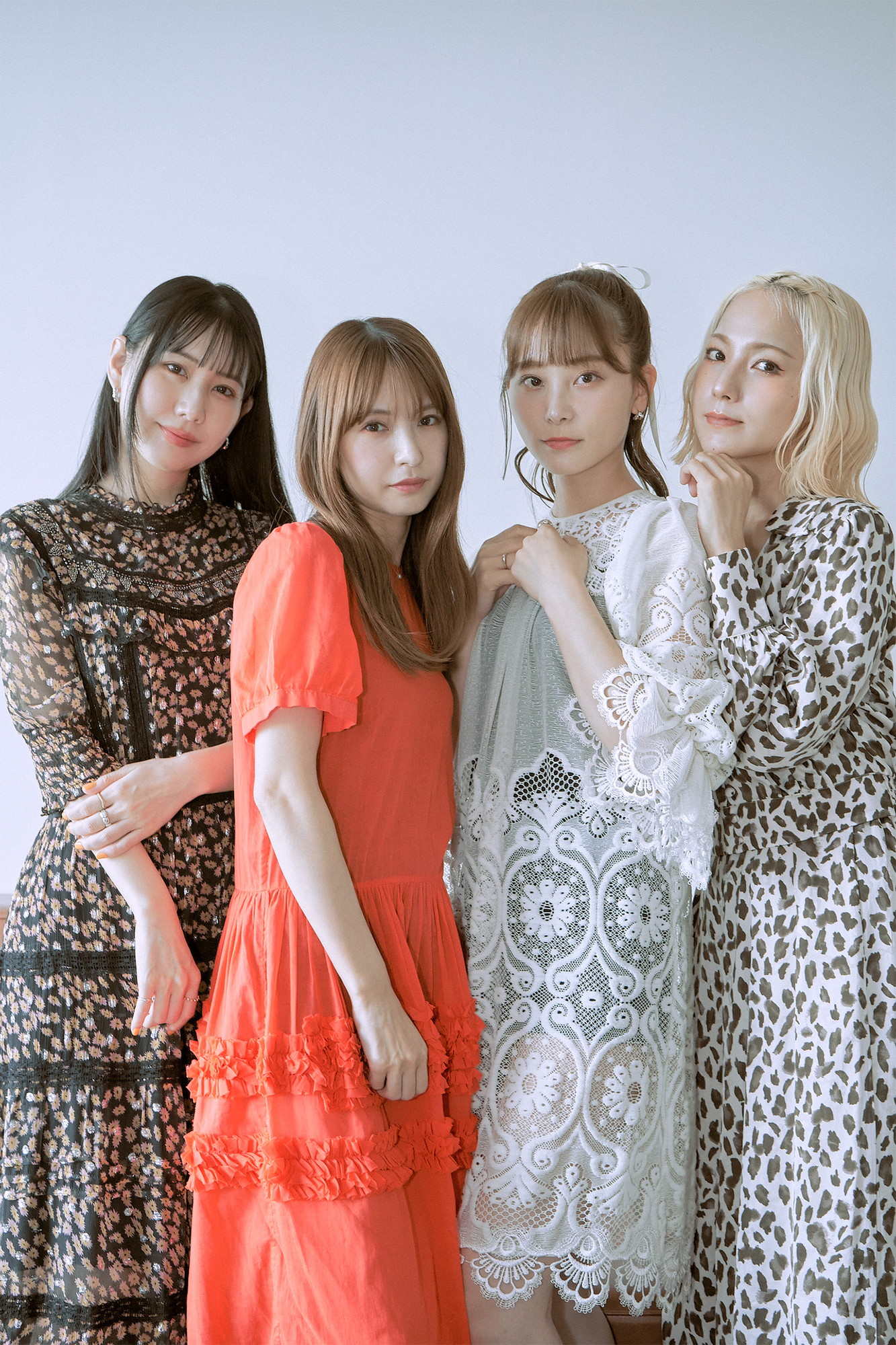
(translation by Thoseguiltyeyes from Scandal-heaven)
Billboard Japan - <Us and Music Vol.24> SCANDAL - Living true to ourselves is the axis of the band

Since 2007, Billboard has hosted "Billboard Women in Music (WIM)." Each year, the Woman of the Year award is presented to an artist who has made significant contributions to the music industry and empowered women through her work. Starting in 2022, Billboard JAPAN launched a project featuring "women in the music industry" from a unique perspective, and as part of the project, it has been developing a series of interviews focusing on women: "Us and Music."
The guests this time are the four members of SCANDAL, who will be performing at 【Billboard JAPAN Women In Music vol.1】 on November 3 at Hibiya Open-Air Concert Hall. This year, on the band's 17th anniversary, they are also challenging the Guinness World Record for "Longest running rock band with the same musicians (female)." From their current state of mind, you can sense the importance of facing oneself, regardless of whether one is involved in a band or in music, and the core strength that comes from doing so.
We're proud of being an all-girl band

──You will be performing at 【Billboard JAPAN Women In Music vol.1】 on November 3 at Hibiya Open-Air Concert Hall. Please let us know how you feel about the offer.
HARUNA: This year is a very important year for us, which includes our 17th anniversary and us going for a Guinness World Record, and being invited to this wonderful event makes us happy, first of all. Because we've always been a band that values being women, we think that this event is perfect for us
RINA: We'll be working out the details of our performance later on, but I hope we can present our current selves as is, including our new song that will be released in October. Also, like HARUNA said, the concept of the event is linked to what we feel, so we want to make it a performance with a message while enjoying the music.
──I'm very much looking forward to your performance at the concert now. You mentioned that you value being women. Specifically, how has being women affected SCANDAL's activities?
RINA: In our case, especially at one point about 10 years ago, people often said to us, "You guys transcend the realm of all-girl bands," or, "You're not an all-girl band—you're a full-fledged rock band." I think those were said as compliments, but we felt really uncomfortable with them at the time. When we confronted that feeling, we realized that we really like this genre of music, without any sense that being an all-girl band made us superior or inferior. We had a positive view of being an all-girl band, so when we were told that we had "surpassed being an all-girl band," we couldn't take it as a compliment
TOMOMI: It was around that time that we began to think that it'd be nice if everyone could enjoy the music of a band, made by women, in a more flat way.

We have been living our lives in our own way - As a result, we have found a way to express ourselves as an all-girl band
──Until I met you all, I thought that there was no need to call you an "all-girl" band, or that you might be uncomfortable with the idea of being called an all-girl band. So when I heard that you like and are proud of the "all-girl band" genre, I realized how faulty my thinking was. What do you like about [being an all-girl band]?
TOMOMI: We had a chance to play concerts overseas during our indie label days, and at that time the four of us wore matching school uniforms. Because of that style, I think that the local people saw all-girl bands as a part of Japanese culture, like anime and manga. When we were interviewed in the US, we were asked, "With the four of you being women, why didn't you form a dance group instead?" I think the reason why that was said to us was because EDM was popular at the time, and all-girl bands must have been rare in the US then. We felt fresh and positive about being categorized as such.
RINA: Band booms come and go from time to time, and it depends on the country. I also think that in the midst of these waves, we have been able to keep the door open for 17 years to girls who want to play an instrument or be in a band. Including that point, our identity as an all-girl band is something we've always been proud of.
MAMI: For us, being an all-girl band is more about living in our own way, rather than liking the all-girl band genre and doing it for its own sake. A band was the best way for us to convey via songs the messages we experience in our everyday lives.

──I heard that you met at a music school where you studied vocals and dance, and that the instructors arranged for you to start playing instruments and form a band. At that time, I think there were fewer female-only bands than there are now. How did you feel at the beginning?
RINA: We felt challenged to start playing instruments we had never played before, and we also felt the technical difficulties. However, there was also the joy of being able to do things that the other students hadn't done, and the pleasure of gradually becoming able to do things we hadn't been able to do before. We were the first all-girl band at the music school we attended, so there was that special feeling as well
HARUNA: I always liked music and wanted to go to that school and stand on stage with singing and dancing, but I didn't have much luck there. I was a senior in high school at the time and was wondering whether I would go on to college without fulfilling my dream, or whether I should start looking for a job. I felt that I did not want to miss this chance. I might have felt discouraged if I was on my own, but because I had three others with me, I was able to continue to have fun and things felt fresh every day.
──In the first place, I wonder why are there so few women in bands compared to men.
RINA: A band can't be formed by just one person, after all. So when a band consists of only women, there comes a time when each of their life stages change, such as having a child. Even if they don't have any, their bodies themselves change in their 20s and 30s, so I think they run into the problem of physical and time difficulties even if they have the energy. In this sense, the hurdle may be higher for women than for men
TOMOMI: That's right. If you give birth at different times, you'll have to pause your activities for years. That's why I respect artists who continue to play music while raising children. I think it's a difficult task.

HARUNA: Considering that, in our case, maybe we were lucky that we formed early. Because we started our activities early on, we can reach a point in our life stages where we've continued on to a certain extent and are ready to change.
RINA: In that way, there was a time when we had the same worries as women who work at companies about balancing our careers and personal lives. The way we make music has changed as a result of us wondering how we can live happy and enjoyable lives.
HARUNA: Yeah. There was a time when we made a lot of up-tempo, flashy songs that would get people excited at festivals and concerts, but we began to think, "Is that enough?"
MAMI: Facing our own lives and future as women had an impact on our production. I think that was a very good thing.
(continues)

